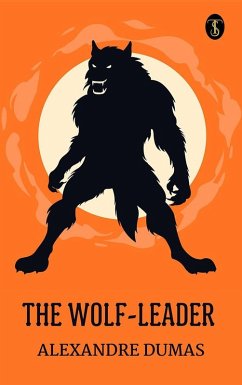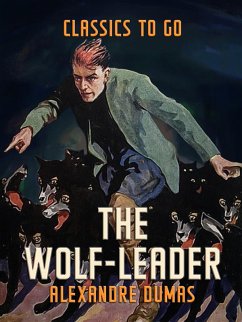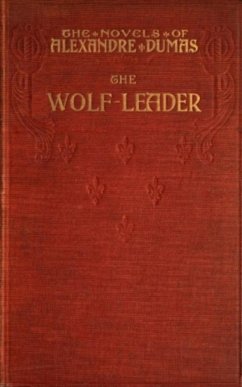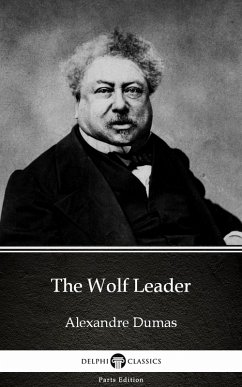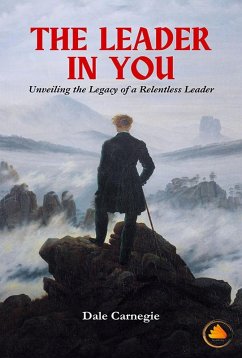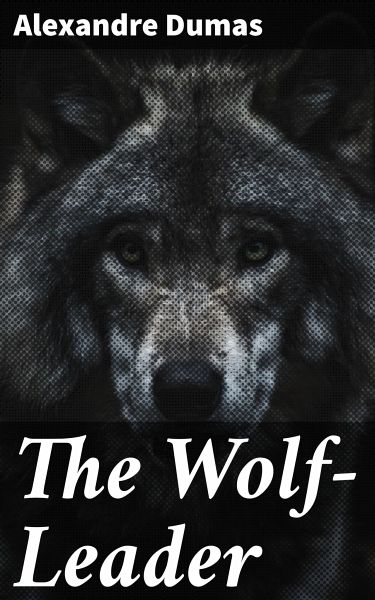
The Wolf-Leader (eBook, ePUB)
Enriched edition. A Tale of Love, Betrayal, and Intrigue in 18th Century France
Kommentar: Montrose, Graham / Redaktion: Good Press / Übersetzer: Allinson, A. R.

PAYBACK Punkte
0 °P sammeln!
In "The Wolf-Leader," Alexandre Dumas weaves a fascinating tale that blends elements of fantasy, folklore, and moral allegory. Set in the 18th century, the novella follows the story of a man who strikes a pact with a wolf, granting him extraordinary powers in exchange for his soul. Dumas's rich, narrative style is laced with vivid imagery and deep psychological insights, reflecting the human condition and our relationship with nature. The book also echoes the thematic concerns of the Romantic era, exploring the duality of man'-noble yet savage, rational yet instinctual'-while invoking the fant...
In "The Wolf-Leader," Alexandre Dumas weaves a fascinating tale that blends elements of fantasy, folklore, and moral allegory. Set in the 18th century, the novella follows the story of a man who strikes a pact with a wolf, granting him extraordinary powers in exchange for his soul. Dumas's rich, narrative style is laced with vivid imagery and deep psychological insights, reflecting the human condition and our relationship with nature. The book also echoes the thematic concerns of the Romantic era, exploring the duality of man'-noble yet savage, rational yet instinctual'-while invoking the fantastical elements typical of folklore, thus challenging the boundaries between civilization and primal instincts. Dumas, renowned for his swashbuckling adventure novels like "The Three Musketeers," had a diverse and rich background, steeped in both personal and historical tumult. As a mixed-race author during a time of racial tension and societal upheaval, Dumas was deeply influenced by themes of identity and power dynamics. His ability to draw from a plethora of influences may explain the dualities explored in "The Wolf-Leader," showcasing both human ambition and the inherent struggle against darker impulses. This novella deserves a place on the shelves of all literary enthusiasts. Recommended for readers interested in complex character studies and those who appreciate the nuances of the human psyche, "The Wolf-Leader" serves as a timeless reminder of the perilous balance between power and humanity. Dumas's masterful storytelling is sure to leave a lasting impression, drawing readers into a world where the line between man and beast is perilously thin. In this enriched edition, we have carefully created added value for your reading experience: - A succinct Introduction situates the work's timeless appeal and themes. - The Synopsis outlines the central plot, highlighting key developments without spoiling critical twists. - A detailed Historical Context immerses you in the era's events and influences that shaped the writing. - An Author Biography reveals milestones in the author's life, illuminating the personal insights behind the text. - A thorough Analysis dissects symbols, motifs, and character arcs to unearth underlying meanings. - Reflection questions prompt you to engage personally with the work's messages, connecting them to modern life. - Hand-picked Memorable Quotes shine a spotlight on moments of literary brilliance. - Interactive footnotes clarify unusual references, historical allusions, and archaic phrases for an effortless, more informed read.
Dieser Download kann aus rechtlichen Gründen nur mit Rechnungsadresse in A, B, BG, CY, CZ, D, DK, EW, E, FIN, F, GR, H, IRL, I, LT, L, LR, M, NL, PL, P, R, S, SLO, SK ausgeliefert werden.





